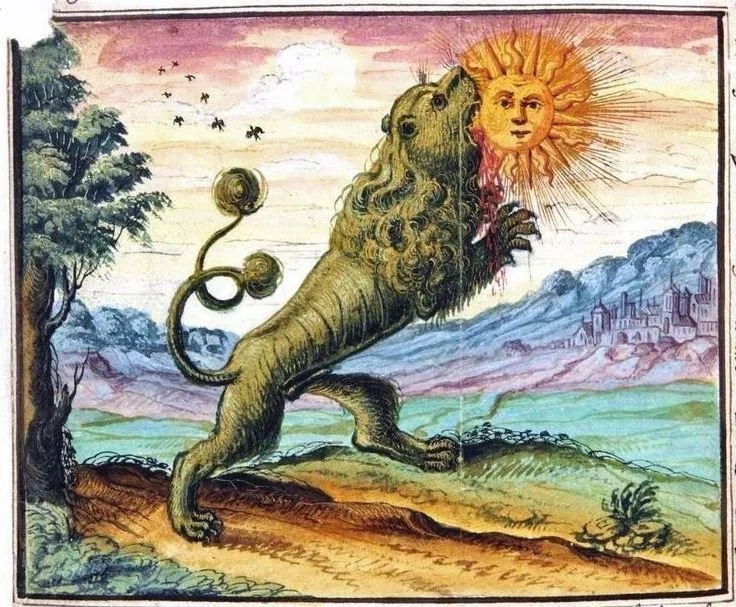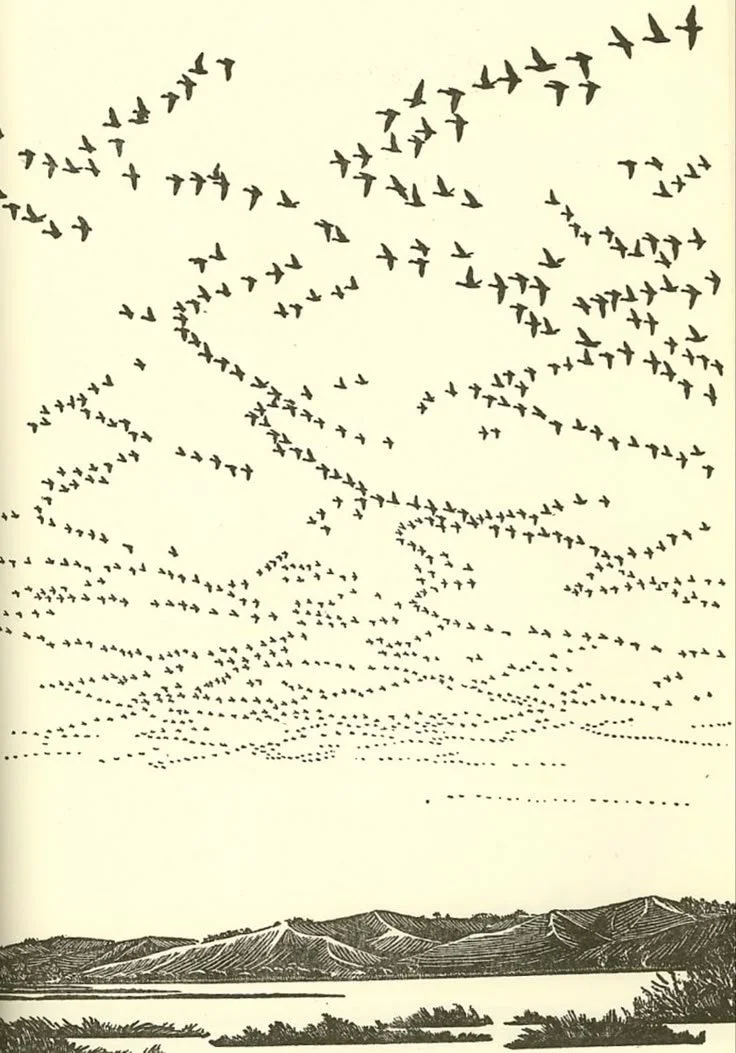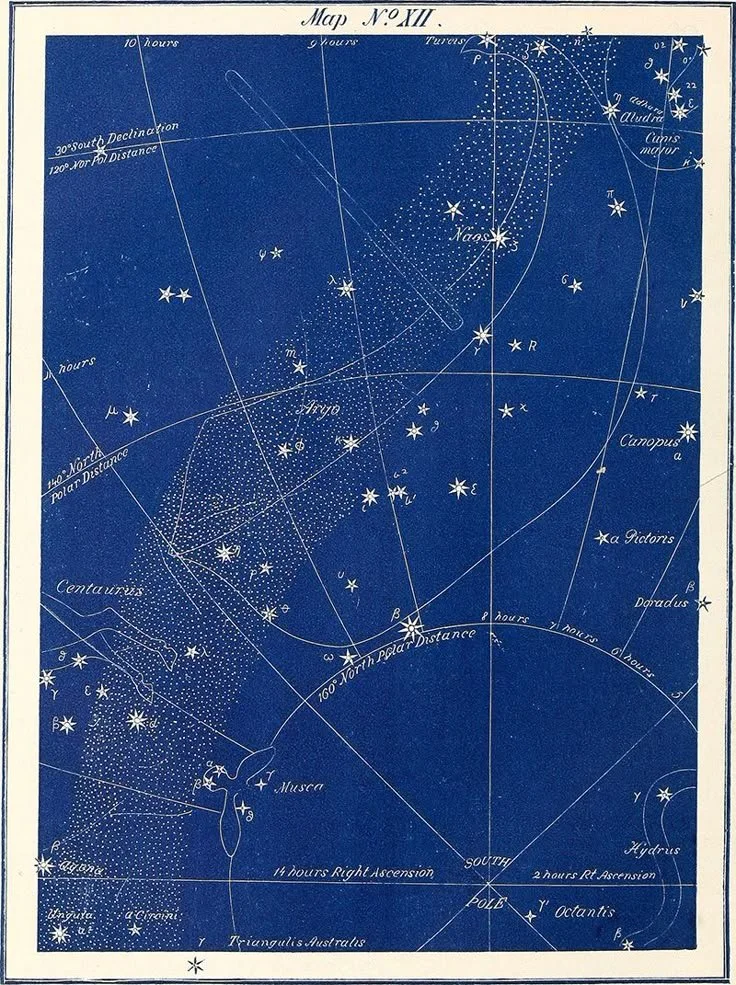UNFOLDING DESTINY:A REFLECTION ON THE RELATIONSHIP BETWEEN FATE AND FREE WILL
One of the core existential questions of all time, a riddle humanity has tried to solve for as long as they have had the capacity to self-reflect, is to what degree human life is controlled by an omnipotent destiny or self-directed by the individual’s free will.
In the past, people primarily subscribed to a fatalistic worldview. The general assumption was that behind all experience, an overpowering force pulls the strings and calls the shots. They either titled this power God or applied more philosophical terms like fate, destiny or karma. From the Renaissance on, and increasingly so through the age(s) of industrialization and rationalization, the fates and god(esse)s have lost their significance. Today, they are mostly regarded as quaint symbols of an unenlightened past—without much relevance for our lives today.
Hand in hand with destiny’s downfall came the rise of the free will. Already the Greek philosophers held the free will in high regard. But as the mainstream determinant of the human experience, it has only had a relatively short career. If we asked 1001 people today on the streets of Oslo, I would assume that 90 % would affirm that it is primarily their will and their choices that create the experiences of their lives, plus a certain amount of randomness that is beyond my-the individual’s- control, while fate and destiny are relegated to old-school superstition.
My own quest to find out about the relationship between free will and fate gained momentum around the age of 17. My mom had gifted me my first astrology reading which opened a whole new universe for me. Around that same time, I synchronistically discovered a book in (again, my mother’s) bookshelves titled The Power of Fate by Thorwald Dethlefsen, a brilliant (and difficult) German psychologist and cosmologue. The book blew my mind (open) even further and set my life on a course I have not left since.
I will spare you the details of my own tour de force through the topic over the last 40 years and cut right to the core of what I as of today have crystallised out to be the equation of life, the dynamic between fate and free will. Take it with a grain of salt—or a fingertip of wild honey. This equation reflects primarily my version-in-process and not a conclusion:
Ingenium + Free Will = Unfolding Destiny
Ingenium: The Innate Genius
If we unravel the threads of the equation layer by layer, we first chance upon the term Ingenium. I love that term and find it flippin´genius! In fact, is a Latin word Ingenium means as much as “innate genius.” Innate again refers to what one is born with. The etymology of genius is also somewhat enlightening, as it means "attendant spirit present from one's birth." In other words, ingenium refers to the genius an individual is born with. If we were to break down the ingenium into the principal parts that create its totality, we would find that it is composed of the sum of the individual’s innate potentials. To be precise, the specific indigenous package of 12 primary potentials that every human has received as a welcome-gift into this duality. A sustainable gift that is never withdrawn or revoked. If we were to translate this into a cosmic formula, it would look as such:
Ingenium = P1 + P2+ P3+ P4 …+ P12
Thus, the ingenium is the sum of the potentials the individual is born with.
Where this one-of-a-kind package of wondrous potential-gifts comes from would be a longer discussion. For now, let us work from the premise that whatever a human being comes into this world with is “given”—“given” in the sense of not having been consciously involved in the decision-making process. Free will is at this stage at its minimum, while a larger logic is operative behind the scenes. The logos, the overarching cosmic intelligence, is thus the executive producer of the “original fate” of the individual, finding its expression in the ingenium, the package of all that is “given”: the genes, the family system, the “hardware,” the potentials. Engineers would describe the ingenium as the individual’s default setup.
More biologically inclined people assume that these “givens” are the result of the genetic lottery, without any implicit intelligent logos involved—a purely randomized process. More meaning-affine people regard the package of innate potentials as part of a larger plan—both in regard to the individual’s overarching journey (“individuation”) and his/her vocational contribution to the collective contribution (“evolution”) .
All this implies that the ingredient of the equation we call ingenium naturally involves a significant influence of an omniscient, an all-knowing intelligence. A transpersonal cosmic logic that ensures that the individual’s initial framework is set up 111% perfectly at the moment of birth—objectively speaking, an impeccable starting point for whatever it is this very soul needs to learn, develop, and become in this lifetime. Which is to say that in this initial stage, the fates absolutely have the upper hand, while free will—the capacity to make willful choices—is effectively down to zero.
In my experience, the individual horoscope is the tool that most clearly describes both the totality of the ingenium and, more specifically, its components, the potentials.
On a more (trans-)personal note—as a human of 60 years and a therapist for over 30 years (in this incarnation)—I find that the central human tragedy, and all its spin-offs (usually referred to as “our problems”), pivot around the lack of awareness of the absolutely amazing amount of potentiality and talent (here referred to as “the ingenium”) that each and every one of us has been presented with at birth.
And that the majority of humans, with each passing year on the planet, are unconsciously distancing themselves from this gift—allowing forgetfulness and everyday profanity to eat up all the magic that life is.
My sense is that it’s meant to be 180 degrees the other way around: that the individual embraces his/her ingenium more and more with each day, and each mile on the path of individuation—creating, synchronistically, a life increasingly aligned with one’s specific set of potentials.
The Free Will
Luckily, this cosmically arranged predispositions of the ingenium provides only the karmic framework—a starting point and not a conclusion a la “your destiny is done and dusted”- already before you even have started living your life.
This brings us to the other equally important component of the life’s overarching equation: the free will. This ingredient appears to operate on the opposite side of the spectrum. While the karmic predisposition provided by the ingenium seems to be out of the hands of our personal control, the component of the free will is potentially all about the individual’s power. The polar opposite of fate-induced determinism, the free will is all about taking charge and assuming full, self-directed responsibility.
To decode the modus operandi of free will, we need to understand that it initially motivates itself out of the individual’s subjectivity. The nature of subjectivity is (in)formed by all the personal baggage accumulated during one’s biographical, psychological, psycho-genealogical,* and meta-psychological past.** One doesn’t need to be a rocket (psycho-) scientist to understand that with such a multilayered package of the past attached, the free will may not be quite as free as the name suggests. In reality, there is a myriad of strings attached, pulling invisibly and forcefully from the psychological underground, whacking and smacking, tossing and turning the will into many erratic moves and decisions. Experience shows that psychological entanglement is seldom the best adviser—and the so-called free will happens to be the first address subjectivity employs to express its shadow aspects. Thus, it is important to have a clear understanding that the free will is only potentially free, while in reality, it is mostly unfree.
As always in duality, for every problem, there is a potential.. The potential here is to set the will free, liberate it to its true nature. To get there the individual needs to remove as many layers of entanglements of the past (biographical, psychological, psycho-genealogical, and meta-psychological) as possible. The more subjective material is worked through and resolved, the less it will taint the quality of one’s choices and the less unfree the will is in its decision-making.
Choices are the axis around which the wheel of the free will turns. Choices are the will’s primary expression, its tool and language. If the proof is in the pudding, then the pudding here is the quality of choices—the decisions being made day by day, hour by hour, minute by minute.
But what are the best possible kinds of choices? Is there such a thing? Is there any valid criterion we could use as an orientation to create the best possible outcome in the unfolding of our individuation, our journey to our objectively suggested destination?
The answer is as simple as it is logical: the objectively best choices happen when the free will makes choices in accordance with its ingenium, in congruency with the innate package of potentials that one is born with. The more the subjective and the objective are aligned in any decision, the more effortless the flow of individuation towards one’s destiny-destination will be.
It cannot be emphasized enough: it is the sum of the choices that represents the pivoting point—that makes it or breaks it for the individual (or something in between, i.e., only partially makes it, and partially breaks it). It is here, in the second stage of the process, that the individual truly can exercise agency over their life. In the free will and its choices lies full self-responsibility, 100% and not one percent less. It is here that the quality of becoming one’s destiny-in-progress is decided.
*referring to the material from the deeper layers of the family system, the genealogy.
**pointing towards the layers of entanglement from earlier incarnations.
Unfolding Destiny
The equation of life is a three-stage rocket: it has a definite starting point, the karmically induced default setting (Ingenium), followed by a stage that is purely process-oriented (the choices of the potentially Free Will), leading to—as all equations true to their name—a result.
For my taste, the term “result” is way too static. In my book of life, the outcome is not a conclusion in the form of an immutable finality, but rather a result-in-progress—a potential outcome that constantly unfolds in relation to the dynamic interplay between the given of the Ingenium and the choices the will makes in any given moment of life’s process.
This outcome-in-the-making is meant to lead somewhere—a destination. Not a definite, pre-defined destination, but (again!) a destination-in-progress. Thus, it makes perfect sense to me that the words “destiny” and “destination” both stem from the same etymological roots. Both point towards a future potential (or a potential future).
That is why I call the outcome of the equation the unfolding destiny. It carries within it a longing to unfold itself like a lotus flower, a knowing of what and how one is potentially meant to be, what one’s true nature is—and is meant to become. There is a continuous push to become that beauty, to realize its power, its beautiful power, its powerful beauty. From the future comes a calling, a beckoning to the destination, the move towards realization—potentials that have become a reality through the alchemical process between the given (Ingenium) and the consciously chosen (the Free Will).
But a potential future destiny is only a possibility. The potentials may also never fully unfold. Or only partially. Or they can start unfolding—and then close again like an oyster. It is all possible. That is why potential means “possible power” and not “guaranteed power.” If one´s subjective choices don’t align with the objectively given, the seeds may dry up.
Luckily—so amazingly super lucky that we don’t even realize it—life and its logos do everything in their power (and that is not little) to support the individual along the way so they can reach their designated destiny-destination. It’s such a perfect* support system, infallibly sending 100% adequate signals and situations to the individual, 24/7, 365 days a year, thus creating the immaculate setting for each of us to become what we are meant to be. What we are destined to be. For us to reach our destiny and destination.
Naturally, that is in life’s best interest. The more an individual becomes the best version of themselves, the more potentials reach their destination and full capacity, the better for life itself. The more self-realized a human being is, the more they can contribute to the collective evolution, thus creating a win-win, both for life at large and for the individual-in-process.
*I try to avoid the use of the word “perfect” when it comes to humans and their process, simply because the claim for perfection puts too much pressure on the soul. The only times I use the term is when I talk about the design of life and cosmos. There, truly everything is 100% “purf.”
Summa Summarum*: 50/50!
It’s written in the constellations - and you write the other 50 %.
As you have understood, I neither subscribe to the idea of life as a fatalistic predetermination that one simply is forced to act out, with no leeway, nor do I buy into the conception of the untethered free will as the one and only deciding factor of life’s experiences. It is the very dynamic between those two—the interplay between the predisposed, karmically induced Ingenium package of potentials and the acts of the conscious choice of Free Will—that does the trick (or not). One could say that the Ingenium represents the framework for the individual’s life, with abundant—but not random and with definite boundaries—space for the free will to learn to make informed choices, i.e., those that are in accordance with the framework. Between the frames, you are free to paint your own pictures. This translates to an enormous amount of freedom—but still within a strong, unchangeable framework. This seemingly paradoxical logic of being tremendously free and at the same time bound to a particular default set of conditions is something we need to learn to balance in therealization of our lives.
In that sense, the karmic disposition and the willful choice are created as equals and are egalitarian in importance. If I were a statistician, the equation would boil down to a 50/50 shared responsibility between karmic disposition and free will.
The Book of Individuation, of the individual’s unfolding destiny, is written along the way, in every nanosecond of the here and now. No person’s script has a particular end carved in stone. The pages may look completely empty, but they are not. The pages are filled with an invisible blueprint, magical mantras, powerful potentials and hidden imagery that the reader-writer of their life needs to learn to decode and bring to life.
Fishing you happy reading and writing!
Copyright Olaf Solarson, 2025


